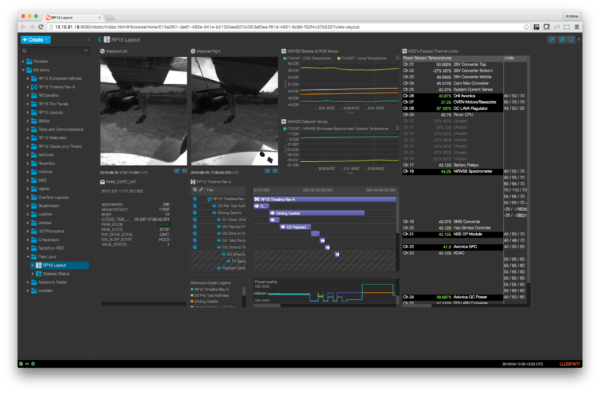US space agency NASA is an extensive user of free and open source software (posts passim). Today German tech news site heise reports on the release of Open MCT 2.0.0.
With version 2.0.0 has released an update of the Open Mission Control Technologies open source framework. Open MCT was developed at California’s Ames Research Center and is used by NASA as a mission control framework for data virtualisation on desktop and mobile devices.

NASA utilises Open MCT for analysing space missions and for planning and implementing experimental rover systems. Included in the latest release is a plug-in which enables adaptation of the framework to be used as an API from Angular to node.js, which is now supported. Critical bugs have also been fixed. Firstly, newly created items which shared a name with an existing object were not displayed in the tree structure. Furthermore, a faulty CSS selector prevented the correct mapping of plans in the timestrip display.
Additional changes include two bug fixes and seven Open MCT maintenance and testing problems, including a display error in which a grid remained visible when the inspector was closed and an error message that popped up during client-side URL redirection. The project is working on four aspects on the maintenance side: the event generator has been adapted from the Angular-based legacy API for node.js and re-implemented.
Besides its use for space missions with NASA Open MCT is an open source framework that could be adapted, according to the developers, for applications as varied as:
- Monitoring of IoT devices;
- Drones;
- CubeSats;
- Robotics;
- High altitude balloons;
- Electronic health monitoring;
- Computer and network performance monitoring;
- Enterprise data visualisation; and
- Process control monitoring.
More information on this latest release may be found on GitHub.